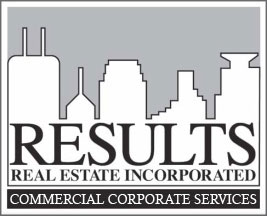Perhaps one of the most important decisions that can be made for your business is the space. Whether your business is just starting out or you need to relocate, it is critical that the leased space meets your business needs. Minneapolis is geographically spread out and diverse; you will find a myriad of choices when looking to lease. It’s best to use a qualified Commercial Real Estate Broker to help you navigate through all the potential problems. Below are just a few of the some common mistakes or issues that tenants should avoid when locating to a space.
Inconvenient Location: Location can be critical to your business success. If many of your clients will be flying in to do business with you, then you need a location that can be easily traveled to from the Twin Cities Airport. If your business serves the local population, then it may be important to be located near a bus or train line. If your business depends on drive up traffic, then you need easy access from all directions. If finding parking spaces is difficult or expensive, you could be losing business.
The same issue applies to your employees. As the labor market tightens, you may want to consider your labor pool in selecting the location. Commute time and expense can be a major consideration for a future employee.
Poor layout: Does the space allow a layout that meets your business needs? You might have the perfect location and a very affordable lease, but having a layout that does not support critical business functions can send a “bad message” to your prospective clients or employees. Do you need a large reception area, or conference room? Do you need closed office spaces for private meetings, or and open collaborative environment? Does your lease allow the flexibility you need for expansion with good business functions?
Conflict with zoning requirements: Each local municipality, for example, has a comprehensive zoning plan that categorizes areas as residential, office-residential, commercial, industrial and downtown. There are also overlay zoning districts within the city that either provide more flexibility or impose additional restrictions to the underlying zoning district. You need to understand whether your current and future business functions are allowed under city zoning ordinances.
Not meeting your special requirements: Many businesses have special requirements that may include special signage, security, and access. You may have unusual power or floor capacity requirements (for example, a law library) that the existing facility cannot accommodate. Make sure that all your facility requirements are detailed out and put into the contract.
Vague contract: Many tenants assume that when they lease, the landowner is responsible for maintenance, upgrade and damage repair. Often this is not the case. The leasing agreement needs to spell everything out in detail to avoid any confusion as to who is responsible for what. Contracts that are broadly vague may be easier to read, but could spell trouble when dealing with any issues or specifics.
There are many aspects to consider when selecting lease space. The average tenant may not be aware of all the pitfalls. A qualified Commercial Real Estate Broker knows all the issues and can ensure that your leased space will meet your needs, both for now and in the future. Results Real Estate Incorporated has a comprehensive process for ensuring that all critical issues are identified and negotiated in the lease contract.


